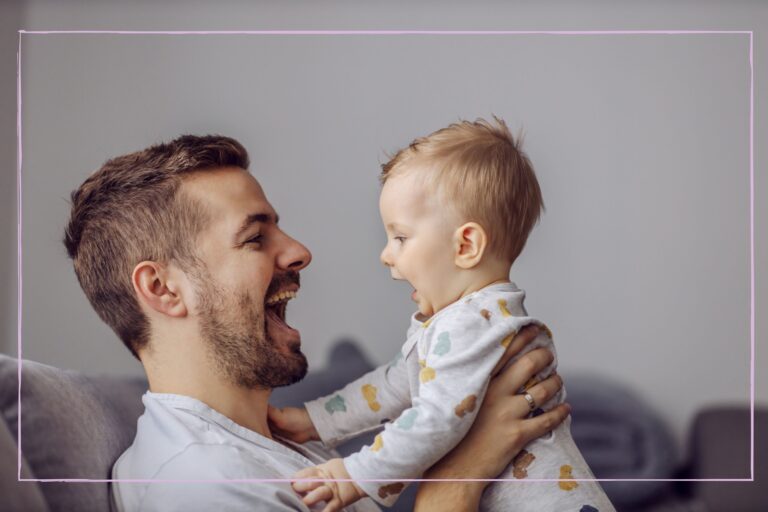Babies often say “dada” first because it is one of the simplest sounds they can make. Parents repeat it frequently, making it familiar and easy for babies to pick up. The combination of an easy sound and consistent repetition from parents helps “dada” become a baby’s first word, marking an important step in early communication.
This moment highlights the strong connection babies begin to form with those around them, as they start to communicate in their own way.
Simplifying Early Sounds
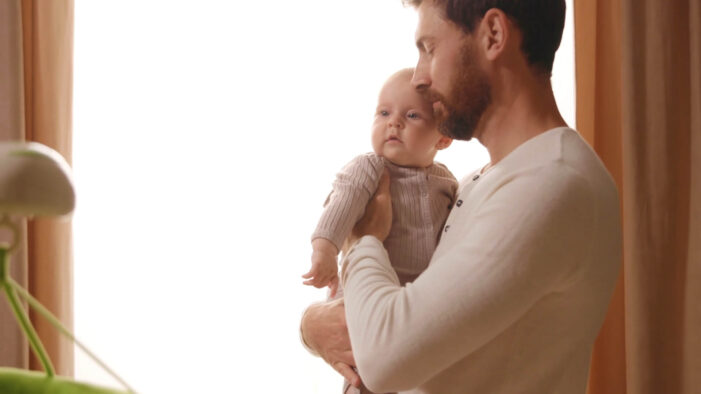
Babies often say “dada” first because their developing vocal cords find it easier to produce certain sounds. The “d” sound in “dada” is a front consonant, which means it requires simpler movements of the tongue and vocal apparatus compared to other sounds. For babies who are just starting to experiment with language, producing these easier sounds is a natural first step. The simplicity of “dada” makes it a frequent candidate for a baby’s first word.
In the first year of life, babies engage in a lot of vocal play. They mimic the sounds they hear around them, and their early attempts at speech are often just imitations of these sounds. “Dada” stands out because it is both simple to pronounce and commonly repeated by parents. As parents eagerly anticipate their baby’s first words, they often say “dada” repeatedly, reinforcing this sound in the baby’s mind. The more a baby hears a word, the more likely they are to attempt to say it themselves.
The process is also supported by the way the brain processes language at this early stage. Babies are naturally wired to recognize and respond to repetitive sounds. When they attempt to mimic these sounds and receive positive reinforcement from their parents, they are encouraged to continue. This combination of simplicity, repetition, and positive feedback creates a strong foundation for the baby’s language development, with “dada” often becoming the first word they confidently repeat.
Parental Repetition and Influence
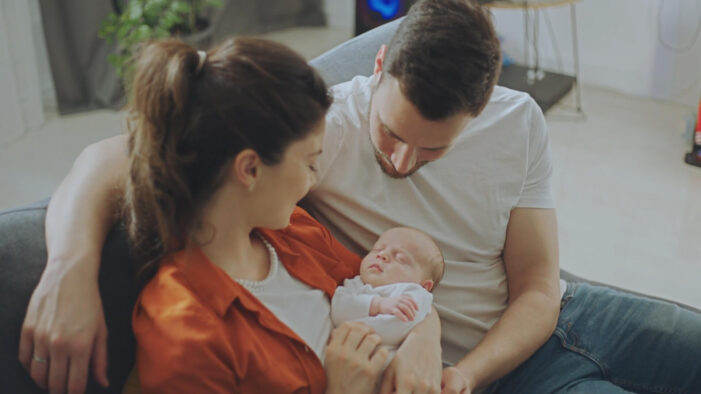
Parents play a crucial role in shaping a baby’s early language development, particularly when it comes to the first words they speak. The word “dada” often becomes a baby’s first word largely due to the frequency with which parents use it. Parents tend to refer to themselves or their partner as “dada” while interacting with their baby, repeating the word multiple times throughout the day. This constant repetition helps embed the sound in the baby’s mind, making it one of the first words they attempt to say.
The influence of parental repetition is significant because babies learn through imitation. From a very early age, babies observe and mimic the sounds they hear around them. When parents consistently use the word “dada” and respond excitedly when the baby tries to repeat it, the baby is encouraged to keep saying it. This positive reinforcement strengthens the baby’s confidence and reinforces their ability to associate sounds with specific meanings.
In addition to repetition, the way parents interact with their baby also impacts language development. By using simple, repetitive words like “dada,” parents help their baby recognize and understand language patterns. Over time, the baby learns to associate “dada” with their father, creating a meaningful connection between the sound and the person. This connection is reinforced every time the baby hears the word and sees the reaction it elicits, further embedding it in their developing language skills.
The role of parents in this process is not just about teaching words but also about creating an environment where language can flourish. By engaging with their baby and providing consistent, simple language input, parents help lay the foundation for future language development. The repetition of “dada” is a key part of this process, making it one of the first and most memorable words a baby will say.
Brain’s Natural Response to Repetition
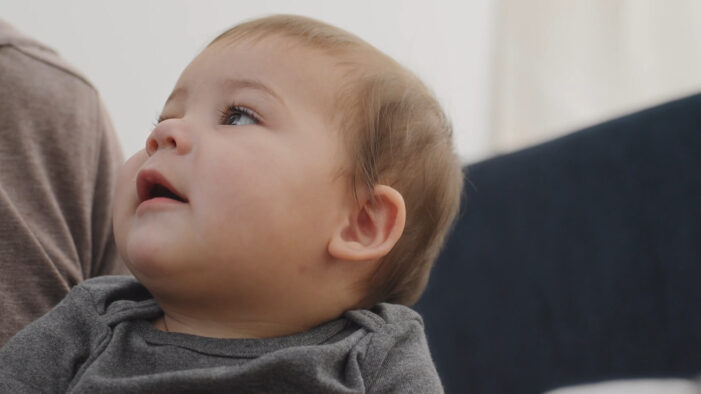
The human brain is naturally wired to recognize and respond to repetitive patterns, which plays a significant role in why “dada” is often a baby’s first word. From birth, a baby’s brain is actively engaged in processing the sounds it hears, searching for patterns and repetitions that it can mimic. The repetitive nature of the sound “dada” makes it easier for the brain to latch onto and reproduce.
Research has shown that infants have a natural preference for repetitive sounds and syllables. When a baby hears a sound like “dada” repeatedly, their brain starts to recognize the pattern and attempts to replicate it. This is why “dada” often comes before more complex words—the brain finds it easier to produce repetitive, simple sounds.
This natural inclination towards repetition is a crucial aspect of early language development. Babies are constantly exposed to a variety of sounds, but those that are repeated frequently, like “dada,” are more likely to be the ones they attempt to say first. The brain’s ability to pick up on these patterns and the ease of producing them makes repetitive words like “dada” ideal as a first word.
Moreover, the brain’s response to repetition is not limited to just producing sounds. It also plays a role in memory and learning. The more a baby hears a word repeated, the more likely it is to be stored in their memory. This repetition strengthens neural connections in the brain, making it easier for the baby to recall and use the word in the future.
Overall, the brain’s natural response to repetition is a fundamental aspect of why “dada” is often a baby’s first word. This preference for simple, repetitive sounds helps guide the early stages of language development, setting the stage for more complex communication as the baby grows.
First Word Excitement and Reinforcement
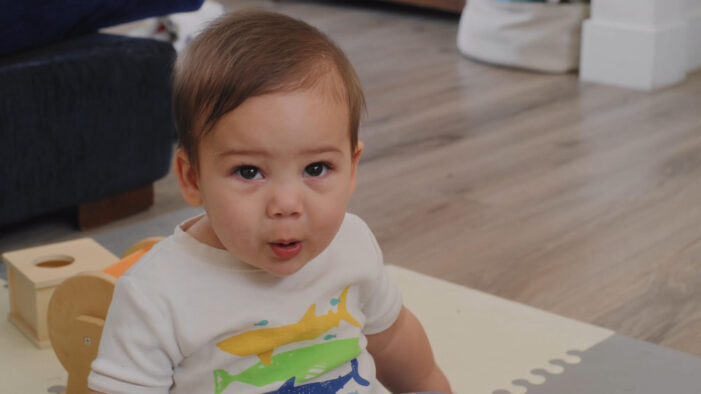
The excitement parents feel when their baby says “dada” for the first time plays a significant role in reinforcing this word as a baby’s first. When a baby utters “dada,” it often sparks a reaction from parents that includes smiles, laughter, and praise. This positive reinforcement encourages the baby to repeat the word, solidifying it as one of the first words in their vocabulary.
Babies are highly responsive to the emotions and reactions of their parents. When parents react enthusiastically to their baby saying “dada,” it creates a powerful feedback loop. The baby notices the excitement and is motivated to say the word again to receive more positive attention. This reinforcement is a key part of how babies learn to communicate—by repeating actions that elicit positive responses from those around them.
The moment a baby says “dada” is often celebrated as a major milestone in their development. This celebration reinforces the word’s significance and importance, both for the baby and the parents. As the baby continues to say “dada,” the word becomes firmly embedded in their growing vocabulary, paving the way for further language development.
In addition to the emotional reinforcement, parents often begin using the word more frequently once their baby says it. This increased usage further cements “dada” in the baby’s mind, making it a go-to word when they want to communicate. The combination of emotional and verbal reinforcement creates a strong foundation for the baby’s early language skills, with “dada” often being the first word they confidently use.
Overall, the excitement and reinforcement surrounding a baby’s first word play a crucial role in its repetition and significance. The positive reactions from parents encourage babies to keep saying “dada,” helping to establish it as one of the earliest and most meaningful words in their language development journey.
Building Early Communication Skills
The moment a baby says “dada” is not just about producing a sound—it marks the beginning of their journey into effective communication. This early word represents a significant step in the development of a baby’s ability to express themselves and interact with others.
When babies say “dada,” they are beginning to understand the concept of using specific sounds to convey meaning. This is a fundamental aspect of language and communication. The ability to associate a word with a person, in this case, the father, is a critical milestone in a baby’s cognitive and linguistic development. It shows that the baby is starting to grasp the idea that words can represent people, objects, or actions.
This early word also lays the groundwork for more complex language skills. As the baby continues to practice and use “dada,” they begin to understand the structure of language and how sounds can be combined to form words. This understanding is crucial as they move on to learning other words and eventually constructing sentences.
The repetition of “dada” helps to build neural pathways in the brain that are essential for language processing. Each time a baby says the word, they are reinforcing these pathways, making it easier for them to learn and use new words in the future. This repetition is a key part of how babies develop their language abilities, turning simple sounds into meaningful communication.
In addition to language skills, saying “dada” also helps babies develop social skills. They learn that their words can elicit responses from others, which is a vital part of social interaction. This early communication helps babies understand the give-and-take nature of conversations, laying the foundation for more complex social interactions as they grow.
Last Words
When a baby says “dada,” it represents an important milestone in their development. It marks the beginning of their ability to use language to communicate, laying the foundation for future language learning and interaction. This first word is not just a sound; it is the start of their journey into meaningful communication and connecting with the world around them.
